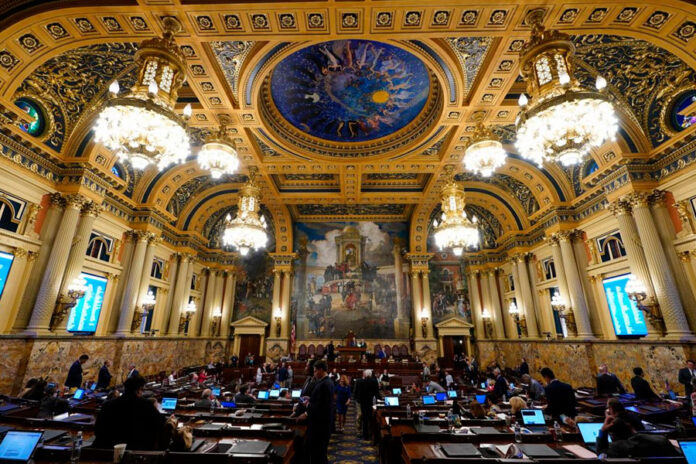
HARRISBURG, Pa.— Facing calls for more public schools funding and wanting to attract big business, Gov. Josh Shapiro will deliver his second budget proposal to Pennsylvania lawmakers Tuesday.
The Democrat has released few details of his spending plan for the 2024-25 fiscal year, which begins July 1. He’s expected to return with bigger proposals for higher education institutions, underfunded public schools and economic development.
The governor is looking at a relatively strong fiscal position and will almost certainly propose an operating budget that goes above this year’s $45 billion. Still, Pennsylvania is running deficits again, using $1 billion in surplus cash to prop up this year’s spending. With flush reserves, Shapiro is expected to propose lowering taxes.
Shapiro will deliver his budget address to a joint session of the House and Senate this year in the ornate Capitol Rotunda. The Republican-controlled Senate and Democratic-controlled House will begin budget hearings in two weeks.
Shapiro’s first budget made substantial investments in education but didn’t go as far as public schools advocates had wanted in the wake of a landmark court decision that ruled how the state funds its schools is unconstitutional.
A nonbinding recommendation to send $1.3 billion more next year to public schools, including subsidies for high-tax districts and school construction, received approval from Democratic lawmakers and Shapiro’s appointees last month, although Shapiro hasn’t said whether his budget proposal will reflect that recommendation.
Meanwhile, a $100 million school choice vouchers program — a priority of Shapiro’s and Republicans’ that helped lead to a monthslong budget stalemate — is likely to come back around. Shapiro backed the proposal to the frustration of fellow Democrats who strongly opposed the measure.
Other unfinished business for Shapiro includes raising the minimum wage to $15 an hour, which Republicans have blocked in the Senate. Like 19 other states, Pennsylvania’s minimum wage is at the federal minimum of $7.25.
To give the state’s economy a further boost, Shapiro wants to spend big to attract large industrial facilities, such as a microchip factory, by getting large tracts of land permitted and prepared for construction. The proposed investments in economic develop seek to address the challenges that abound: Even though Pennsylvania’s payrolls hit a record high in December, the state’s labor force has lagged behind pre-pandemic levels. The state’s economy is less dynamic than some other states, and its workforce is relatively older and slower-growing.
Shapiro also said he would propose nearly $300 million more for public transit agencies, a roughly 25% increase, and a sizable boost for state-owned universities.






